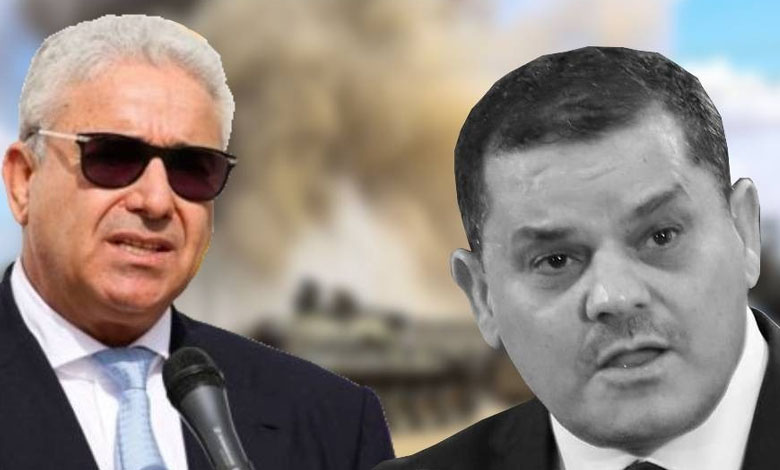A debate between Bashagha and Dbeibeh and a military build-up; What awaits Libya?

Outgoing Prime Minister Abdul Hamid Dbeibeh and outgoing Libyan Prime Minister Fathi Bashagha have been fighting each other on the Libyan scene as massive military build-up continues around the capital Tripoli.
Bashagha yesterday sent an official letter to Dbeibeh, which he published through his official Facebook page, in which he said: “Committed to moral, national and legitimate responsibilities, and fully committed to the stability of the Libyan State and the protection of its interests from all threats to its stability, independence and the security of its citizens… I appeal to you, honestly and without hypocrisy, to succeed in peace with dignity and honor”.
Dbeibeh appealed to the government to heed his call, respect the interest of the homeland, hand over power peacefully, embody the meaning of legitimacy and democracy, and consolidate the foundations of a civil state.
Dbeibeh responded to Bashagha’s speech by tweeting: “If you are concerned about the lives of Libyans, focus your efforts to enter the elections. Away from the illusion of military coups, the time has passed”.
In another tweet, Dbeibeh added: “Note: I did not respond with a message because I am busy serving the Libyans”.
These messages come at a time when the capital Tripoli is witnessing a serious military escalation, exacerbating fears of a return to the specter of fighting by groups affiliated with the two parties that are mobilizing to support or confront Bashagha should it enter the capital.
The UN mission in Libya has entered the crisis line, stressing that it is following with deep concern the ongoing troop build-up and threats to resort to force to settle the claims of legitimacy in the country.
In a statement carried by Afrigate News, the UN mission said: The current political impasse and all aspects of the crisis surrounding Libya cannot be resolved by armed confrontation, she said, noting that the solution to these issues can only come through the exercise of the right of the Libyan people to choose their leaders and the renewal of the legitimacy of the State institutions through democratic elections.
Since last March, Libya has been witnessing a power struggle, which resulted from the refusal of the outgoing Prime Minister of the Libyan Unity Government, Abdul Hamid Dbeibeh, to hand over power to the government of Fathi Bashagha, appointed by the House of Representatives.












